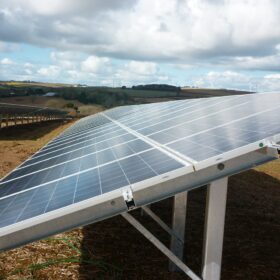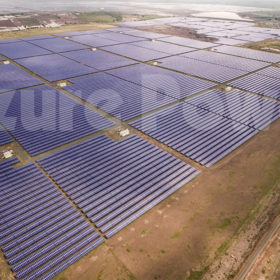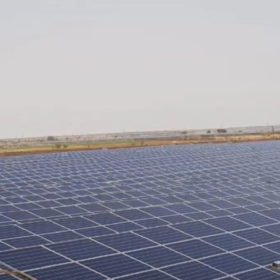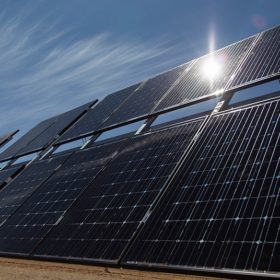Soleos Energy, Melci Holdings break ground on 200 MW solar park in Congo
India’s Soleos Energy, in partnership with Melci Holdings, has started building a 200 MW solar park in the Democratic Republic of Congo. The project is set for commissioning by late 2026.
The Hydrogen Stream: Gensol, Matrix consortium to develop green hydrogen powered steel facility
Gensol Engineering and Matrix Gas & Renewables have partnered to develop a green hydrogen powered steel facility with a capacity of 50 tons per day (tpd).
South Australia regions earmarked for large-scale renewable energy projects
South Australia has announced two proposed release areas designated for the development of large-scale renewable energy projects in the Whyalla and Gawler Ranges regions.
Azure Power secures REC and HSBC refinancing, completes early bond prepayment
With this, more than $ 500 million of debt has been refinanced in the current financial year
NTPC allocates 976 MW solar at an average price of $0.030/kWh
Mahindra Susten, Rays Power Infra, Refex Green, ReNew Solar and SAEL have emerged winners in NTPC’s auction for 1.2 GW of interstate transmission system (ISTS) connected solar capacity.
Prozeal Green Energy wins solar-plus-storage project in Leh
Prozeal Green Energy has won Solar Energy Corp. of India’s tender for 25 MW AC solar plant with 20 MW/50 MWh battery energy storage system in Leh.
GEAPP, NITI Aayog partner to advance sustainable development
Global Energy Alliance for People and Planet (GEAPP) and NITI Aayog have partnered to support Indian states in developing comprehensive energy transition plans, focusing on sustainable policies, innovative business models, and the adoption of clean energy solutions.
Will COP29 push the world toward real climate action?
As the world looks to COP29, the stakes have never been higher. Climate finance, energy transitions, biodiversity, adaptation, and carbon markets—each of these issues represents a critical piece of the puzzle in the fight against climate change. Azerbaijan, as host, faces the daunting challenge of balancing competing interests while pushing for ambitious global action.
Tembo Global secures 124 MW solar PPA with Maharashtra government
Tembo Global Industries, an engineering mechanics and project execution solutions provider, has forayed into the renewable energy sector with investment in a 124 MW solar power project. The project will supply power to Maharashtra State Electricity Distribution Co. Ltd under a 25-year power purchase agreement.
Large-scale PV has positive environmental effect on desert areas
Researchers from China found that big solar power plants have a positive positive impact on the ecological environment of desert areas. Their testing was conducted at a 1 GW solar park located in China’s northeastern Qinghai province.















